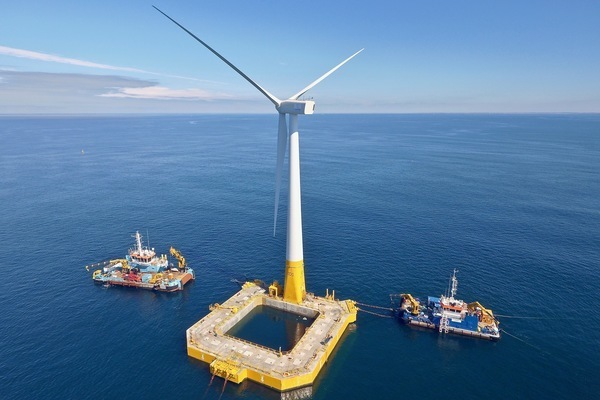
A workshop on the development of green and new energy was held a few days ago by the Central Economics Committee as a part of Industry 4.0 Summit 2021.
Nguyen Duc Hieu, Deputy Head of the committee, affirmed that countries all are striving for production and use of green clean energy, and the eighth national power development plan calls for Vietnam to prioritize renewable and new energy resources.
It’s expected that solar power will account for 5.4-5.9 percent of total electricity generation output by 2030 and 8.4 percent by 2045. Meanwhile, onshore and near-shore wind power would account for 6.5 percent. As for offshore wind power, the capacity would be 2,000MW or higher by 2030.
Vietnam would also generate electricity from solid waste, biomass and other types of renewable energy, which is expected to account for 0.9-1 percent by 2030 and 2.2-2.5 percent by 2045.
If the plan is implemented, the generation capacity and the proportion of electricity from renewable energy sources will increase rapidly in the time to come, especially in 2030-2045, when technological advances will help reduce investment rates and electricity generation production costs.
Commenting about offshore wind power, Mark Hutchinson from GWEC said Vietnam could not only create a new industry but also generate hundreds of thousands of jobs and a new offshore wind power center in Asia if it is ahead of other countries, including South Korea, Japan and the Philippines.
Dao Xuan Lai from UNDP expressed his concern about how to treat the waste from wind and solar power plants after the equipment ends its life cycle.
Lai warned that the waste of wind and solar power plants is part of the industrial waste stream. The volume of waste could be up to hundreds of thousands of tons in the next 10 years.
Photovoltaic panels and end-of-life wind turbines contain valuable materials which, if recycled, could help save natural resources. Discarded photovoltaic panels are considered hazardous waste unless components containing hazardous materials are properly removed and disposed of.
In Vietnam, there is still no legal basis for the classification of waste from wind and solar power plants, and the waste collection and treatment is rudimentary.
The representative from UNDP suggested classifying waste and compiling detailed guidance on how to uninstall photovoltaic panels. Wind and solar power developers need to observe the extended producer responsibility (EPR).
Luong Bang

Vietnam sees big opportunities in wind energy
Vietnam’s commitment to increasing its energy capacity using renewable sources and favourable macroeconomic conditions may create valuable opportunities for wind investors and developers.

What is an acceptable clean-power price?
Vietnam wants to develop clean energy but the development needs to be reasonable to ensure that retail prices are affordable for most people.